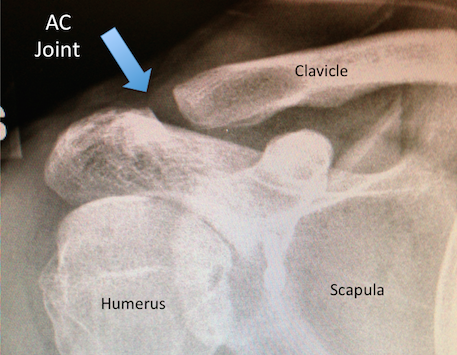
Joint pain can be an incredibly debilitating condition, affecting the range of motion and ability to move freely. Joints are essential for providing stability and the strength needed to perform everyday tasks, from walking up stairs to carrying groceries.
With age, those joints may become more fragile and prone to injury or deterioration due to overuse or chronic illnesses such as arthritis. Taking care of your joints is important to ensure that they remain healthy and strong throughout your life.
Here are eight helpful tips you can use to take care of your joints in Texas so you don’t have to worry about joint pain getting in the way of living a full life.
Regular Exercise
Regular exercise is essential for maintaining joint health as it strengthens the muscles surrounding the joint, improving stability and reducing your risk of injury. Make sure to include both aerobic (cardio) exercises and strength training in your workout routine.
You can also incorporate low-impact exercises such as swimming and cycling which are gentler on the joints compared to high-impact activities like running.
On the other hand, activities like running and jumping should be avoided if you’re already experiencing joint pain.
Medical Procedures
Certain medical procedures can help protect your joints against wear and tear.
One such procedure is an injection of hyaluronic acid or corticosteroids into the joint, which helps reduce inflammation in the joint and provide pain relief.
Surgery may also be an option for more severe cases of joint deterioration or injury. If you need to take Arthroscopic Knee Surgery in Dallas, prepare for the surgery with adequate rest, nutrition, and physical therapy. Even though it’s considered minimally invasive, choosing the local orthopedic clinic with the most experienced and skilled surgeons is essential not only because of the proximity but also for the shorter waiting and recovery time.
Nutrition
Yes, eating a balanced and nutrient-rich diet is key to keeping your joints healthy. Eating foods that are high in antioxidants such as tomatoes, kale, blueberries, spinach, and other leafy greens helps protect joint cells from damage caused by free radicals.
In addition, adding anti-inflammatory omega-3 fatty acids found in fatty fish or flax seeds can help reduce inflammation and promote joint health.
However, you can try to limit your intake of saturated fats and processed foods, as these can increase inflammation in the body.
Weight Management
Weight plays an important role in the health of your joints since excess weight puts extra pressure on your joints – knees, hips, and spine bear the brunt of this strain. Moreover, obesity can lead to a variety of inflammatory conditions which can worsen joint pain caused by osteoarthritis, a common condition that affects millions of people around the world.
To reduce the risk of joint pain caused by obesity, it is recommended to maintain a healthy weight through diet and exercise. For example, eating a balanced diet with lots of fruits and vegetables and engaging in regular physical activity can help you reach or maintain your ideal body weight.
Additionally, many experts suggest avoiding processed snacks like chips, cookies, and sugary drinks, as well as limiting red meat consumption.
Rest
Getting adequate rest is essential for joint health as it helps maintain joint flexibility and reduce inflammation. Make sure to take breaks between activities, avoid long periods of sitting or standing, and get at least seven to nine hours of sleep each night.
Additionally, you can try different relaxation techniques such as yoga, tai chi, or meditation to reduce stress and relax your muscles. The activities should be tailored to your individual needs, so consult with your doctor or physical therapist for the best advice.
Joint Protection
When performing everyday activities, make sure you’re using proper body mechanics such as squatting instead of bending over and using the larger muscles in your legs when lifting heavy objects. Additionally, try to avoid unnecessary repetitive motions or high-impact movements like running on hard surfaces, as they can increase your risk of joint injury.
Wearing joint protection such as compression sleeves and braces can help reduce pain and protect your joints from further damage. These types of protection can be especially beneficial for those with arthritis or other joint-related conditions.
Supplements
Some studies suggest that glucosamine, chondroitin, omega-3 fatty acids, and calcium may reduce inflammation and stiffness in the joints. For instance, taking vitamin D can help strengthen bones, which will ultimately help protect the joints.
Furthermore, some people may find relief from joint pain associated with osteoarthritis by taking dietary supplements such as SAMe, an S-adenosylmethionine. It can help reduce cartilage breakdown in the joints. Similarly, topical treatments like capsaicin cream can be applied directly to the skin over painful joints and are also thought to be beneficial.
However, remember that supplements are not a replacement for medication or professional treatment and should be used in conjunction with medical advice. Additionally, many of these products may interact with existing medications or conditions, so make sure you inform your doctor about any supplements you are taking.
Physical Therapy
Finally, regular physical therapy is a great way to help manage joint pain and maintain joint flexibility. Physical therapists can teach you stretching and strengthening exercises tailored to your individual needs, which will ultimately improve your range of motion and reduce the risk of injury. They may also use modalities such as heat or cold therapy, ultrasound, electrical stimulation, or massage to help reduce inflammation and stiffness.
On the other hand, some alternative treatments such as acupuncture, cupping, and reflexology have also been found to be beneficial for joint pain.
Of course, it is important to consult with your doctor or physical therapist to make sure you are doing the exercises correctly and safely.
Taking care of your joints is essential for maintaining healthy physical function. Fortunately, there are many ways to do this including eating a balanced diet and getting enough rest, using proper body mechanics when engaging in everyday activities, wearing joint protection if necessary, taking supplements or topical treatments with the consent of your doctor, and participating in regular physical therapy or alternative treatments as appropriate.
With these tips in mind and an individualized plan tailored to your needs from a healthcare professional, you can help keep your joints strong and healthy for years to come.

















Follow Us